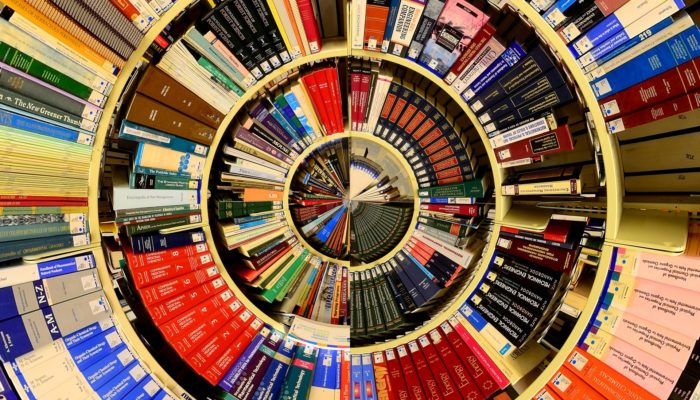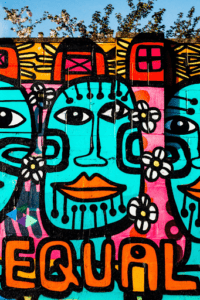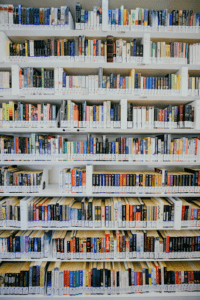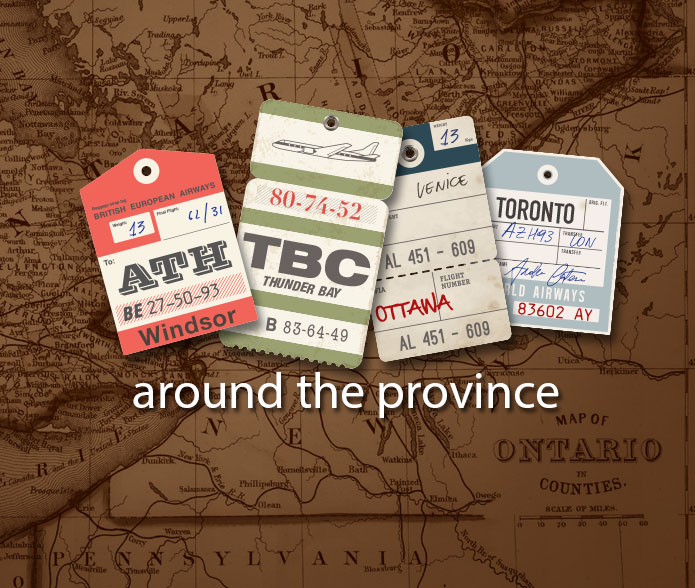Learn about a librarian’s research into 2SLGBTQ+ Libraries and Archives, preserving queer history, and current activism efforts.

Indigenous metadata and reconciliation: A reflection on the 2020 OCULA Lightning Strikes
 The coloniality of the library catalogue—the socially biased and racist description and classification of Indigenous materials—is a complex issue that reflects Canada’s ongoing oppression of Indigenous Peoples. In 2018, I began a research project with the objective of learning how library staff are addressing this issue in the wake of the Truth and Reconciliation Commission’s 94 Calls to Action. There are numerous challenges facing us: the sharing of records across institutions, inadequate labour and funding capacity, and internal resistance to social change. Information professionals are working across institutions and professions to try and create new vocabularies and ontologies, building relationships with other libraries, institutions, vendors, and publishers and collaborating as much as possible to make Indigenous materials, knowledge, and belongings accessible. However, many argue that more than patchwork labour is needed: sustainable, systemic change must be enacted through national organizations like Library and Archives Canada and the Library of Congress. The situation is made more difficult by a disappointing apathy towards upholding Indigenous rights in a library context. The patchwork efforts to instigate larger change are labours that often fall on the shoulders of few. In library school, we are often told that libraries are vehicles for social change and yet, in the field, I was met with a sad reality: many libraries are not prioritizing access to Indigenous materials. Many are not advancing reconciliation at all.
The coloniality of the library catalogue—the socially biased and racist description and classification of Indigenous materials—is a complex issue that reflects Canada’s ongoing oppression of Indigenous Peoples. In 2018, I began a research project with the objective of learning how library staff are addressing this issue in the wake of the Truth and Reconciliation Commission’s 94 Calls to Action. There are numerous challenges facing us: the sharing of records across institutions, inadequate labour and funding capacity, and internal resistance to social change. Information professionals are working across institutions and professions to try and create new vocabularies and ontologies, building relationships with other libraries, institutions, vendors, and publishers and collaborating as much as possible to make Indigenous materials, knowledge, and belongings accessible. However, many argue that more than patchwork labour is needed: sustainable, systemic change must be enacted through national organizations like Library and Archives Canada and the Library of Congress. The situation is made more difficult by a disappointing apathy towards upholding Indigenous rights in a library context. The patchwork efforts to instigate larger change are labours that often fall on the shoulders of few. In library school, we are often told that libraries are vehicles for social change and yet, in the field, I was met with a sad reality: many libraries are not prioritizing access to Indigenous materials. Many are not advancing reconciliation at all.
 This year’s OLA Super Conference renewed lost hope for me. I had the opportunity to learn from Indigenous professionals and allies from across the country. I was reminded that, as settlers, we have the privilege of walking away at the end of the day: we have the privilege of choice. I was proud to give my presentation, “Indigenous Metadata and Reconciliation Efforts at Canadian Libraries: Framing the Issues,” at OCULA’s Lightning Strikes alongside my friends and colleagues, young professionals who have chosen to act. Bryn Huzzey, Tomoko Shida, Emily DaSilva, Laura Viselli, Erin Calhoun, Angel Su, and Abigail Warnock spoke about the challenges facing the LGBTQ2S+ and racial minority communities, mental health, and environmental justice, and how libraries can help support them. It gives me great hope that the future of libraries lies with people who are passionate, thoughtful, and critical about our profession; and it gives me great joy to see that the projects we learned about at this year’s conference—led by so many information professionals that continue to push for change—are having an impact on the next generation. Considering the exceptional presentations given by my peers, I was more than surprised to win this year’s OCULA Lightning Strikes Award. I am excited to be this year’s student representative, and look forward to learning and working with the members of OCULA Council.
This year’s OLA Super Conference renewed lost hope for me. I had the opportunity to learn from Indigenous professionals and allies from across the country. I was reminded that, as settlers, we have the privilege of walking away at the end of the day: we have the privilege of choice. I was proud to give my presentation, “Indigenous Metadata and Reconciliation Efforts at Canadian Libraries: Framing the Issues,” at OCULA’s Lightning Strikes alongside my friends and colleagues, young professionals who have chosen to act. Bryn Huzzey, Tomoko Shida, Emily DaSilva, Laura Viselli, Erin Calhoun, Angel Su, and Abigail Warnock spoke about the challenges facing the LGBTQ2S+ and racial minority communities, mental health, and environmental justice, and how libraries can help support them. It gives me great hope that the future of libraries lies with people who are passionate, thoughtful, and critical about our profession; and it gives me great joy to see that the projects we learned about at this year’s conference—led by so many information professionals that continue to push for change—are having an impact on the next generation. Considering the exceptional presentations given by my peers, I was more than surprised to win this year’s OCULA Lightning Strikes Award. I am excited to be this year’s student representative, and look forward to learning and working with the members of OCULA Council.
—
Oy Lein Jace Harrison (she/her) is an Indigenous Metadata Assistant at the University of Toronto Libraries. You can reach Jace at jace.harrison [at] mail.utoronto.ca.
Photo credits
- Cover photo by Gerd Altmann from Pixabay.
- Photo by Oliver Cole on Unsplash.
- Photo by chuttersnap on Unsplash.


